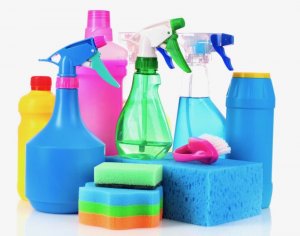For most manufacturers of just about anything, getting your products to stand out out against a sea of others is no easy task. Many spend fortunes on dazzling magazine and billboard ads and television commercials, but modern consumers have become immune to in-your-face advertising, as they are barraged by it every day of their lives.
The old ways of advertising are simply not as effective as they once were, making new business models such as private label perfuming one of the most popular business prototypes in the modern business world. A private label perfume has the subtle but effective ability to expand brand recognition because it instantly communicates company vision, instills brand loyalty and ultimately is a unique fragrance.
But how do you add a private label fragrance to your business or product? Read on for the most extensive guide to private (and white) label perfumes, how they can help to expand brand recognition, communicate company vision and instill brand loyalty, how to find the right private label manufacturer to suit your unique tastes and needs and how our teams at Alpha Aromatics can help for a successful launch for existing or startup private label fragrance entrepreneurs with custom designed creations or familiar aromas types.

What Is Private Labeling And Why Is It Important?
For sellers on online marketplaces such as: Etsy, eBay and Amazon, private labeling has become a lucrative method for online sellers to add value to their products and differentiate themselves from the proliferation of generic items that are sold online. The way it works boils down to one company manufacturing a private label which is sold to and serves as permission for another company to use that label and offer it for sale under another name or brand.
Private Labels vs. White Labels
Private labels and white labels both refer to generic items that are branded by resellers for sale to the general public. Both branding sectors have experienced tremendous growth in the last few years and both models are ideal for savvy entrepreneurs seeking to diversify their wares, expand their marketplace and increase their existing revenue base. While many believe the terms are synonymous, they are not. There are specific differences between them that affect both quality and pricing.
Private label brands are made for exclusive sale by a specific seller, and that seller can alter or enhance a product in any way he or she desires, which can help target a specific audience. These items are generally more physical in nature and produced in large and often customized quantities for specific resellers.

Private labeling usually results in the highest possible profit margin because the reseller only pays someone else for manufacturing. This cost is often counterbalanced by the fact that resellers can ask higher prices. There is, oddly enough, always value in a branded product even if that brand is totally unknown to the public.
Private label brands are often less expensive and generate greater profit margins than national brands. The names of successful manufacturers using the private business model are usually not well known to the consumers who love their products. Brand recognition is reserved for resellers.
Some product categories that are often sold using private labels include: personal care; paper products; salad dressings and condiments; cosmetics; beverages; cleaning products and frozen foods, just to name a few. The choices are countless and only limited by the confines of the reseller’s imagination.
What Are White Labels?
White label product offerings are more complex and never made to order. They are essentially the tech industry’s adaptation of private labeling. They are even cheaper than private label products, and can generate higher profit margins. The process boils down to taking (paying for it, of course) technology products and/or solutions that are developed, controlled and serviced by someone else.
Manufacturers of software sell an unbranded product to a reseller who then places a name on it. This makes it seem as if multiple resellers had each created the product themselves. Resellers often repackage products under their own brand name without changing them at all, and sell them directly to consumers. This helps to maintain customer recognition.

White-label software and service opportunities do not require physical rebranding or a built-in distribution network to sell and fulfill product orders. A reputable white-label tech company will offer free pricing tiers that permit a reseller to try the product before having to pay for using it. This translates into many opportunities for entrepreneurs seeking entry into the tech market space.
The term, “white label” derives from an old practice employed by the music industry of the past. Radio station disc jockeys would place white labels on promotional records to prevent competitors from knowing which artist performed the songs. These plain white label promotional recordings were produced in large quantities by bigger record labels, and they were distributed as demonstration discs (demos) in order to assess consumer opinion.
A Brief History of Private Label Brands
Private label products have been part of the retail industry in America since the early 1900s. The great Atlantic & Pacific Tea Company (A&P) was partially built upon its freshly ground (in-store) Eight O’Clock™Coffee, which is as popular today as it was then.
Sears-Roebuck is the perfect example of a store whose success was driven at least partially by a strategy involving both the purchasing and developing of its own brands, such as Kenmore and others, which are iconic American brand names to this day. Private labeling has also been a major factor in the fashion industry, where retailers often create their own brands with similar styles of clothing at lower price.
The force driving the growth and success of the private label is the enduring belief among retailers that a powerful “house brand” that consumers could only purchase at their store would influence brand loyalty. Modern research indicates that more than half of all consumers believe that retailer-sponsored products are at least as good as nationally branded products, and 48 percent claim they actually prefer and seek out private brands.
What To Look For And How To Find Private Label Manufacturers
The value of any manufacturer as seen through the eyes of a reseller seeking private labeling is totally relative. The importance will vary for every reseller because each manufacturer has diverse specialties. Deciding which manufacturer to select totally depends on the type of goods that are intended for sale.
Taking the example of a private label perfume and Alpha Aromatics once again, the chosen manufacturer must have a solid reputation and be able to create the desired scent from raw materials and label the finished goods with a reseller’s company’s custom design and packaging.

Assessing a particular product and seeking the manufacturer who can produce a high-quality product at the lowest cost is no easy task. It requires some homework and shopping around, as what is most important here is finding a trusted and reliable manufacturer that is known for the specific niche your product falls into.
Three good online sources are: Google, Thomasnet and Alibaba. Google allows for general search results about manufacturers; Thomasnet is a suppliers directory that is free to use and allows searches by both products and locations; Alibaba, via the input of a product keyword, will yield third-party verifications of the product and certifications of the company.
There are also online forums that can help in the search for reliable private label manufacturers. They include: Reddit where users can ask for manufacturer’s recommendations; Warrior Forum where much advice is available about private labeling manufacturers and Salehoo Forum, where users share their experiences with specific niche private label manufacturers.
5 Key Qualities Of A Good Private Label Manufacturer
Basically, the qualities to look for in seeking a good private label manufacturer should include these listed below.
Product Specialization
Resellers should always pick a private label manufacturer that specializes in the category of product they are selling. As stated earlier, for private label perfume and scents, look no further than Alpha Aromatics.
Competitive Pricing
Sellers will have to do some homework here and comparison shop for the price that will yield the highest profit margins. The minimum number recommended is five quotes from which to select the best price range. These quotes should also include: pricing for sample products; discounts for bulk buying, shipping costs and minimum quantities.

Product Quality
There is no better way for a reseller to assess the quality of product than to sample it personally. In the case of private labeling, this translates into getting samples that can be seen and tested before they are placed on the market. A thorough reseller might even take the time to visit the factory where the private labels are made to witness the production process before making any decisions.
Low Defect Rate
This factor may require some persistence to check but it is important to do this. Resellers can find feedback online concerning the experience of other resellers with the particular manufacturer. A company’s track record of defects reveals much unspoken about a company’s attitude and work ethic. When reading these reviews, pay particular attention to how negative feedback is handled.
Reliable Delivery
Reliable deliveries are vital to the proper operations of any commercial enterprise. Resellers must inquire about delivery times before purchasing from a manufacturer because they greatly affect sales and return business from satisfied consumers.
Alpha Aromatics and Private Labeling of Perfume
Resellers have a great deal of creative control over private label perfumes created by our master perfumers because they can select the bottle and packaging that represents their unique vision. A private label fragrance line can be either a small limited edition of a few dozen perfumes or it can include a much bigger collection of thousands of pieces. Either way, our team is here to guide clients through the signature scent process from beginning to end.
Signature scents for private labels placed on candles and personal care products, like soaps and cosmetics, have a myriad of variations and can suit any theme or season. Some are always more popular than others. For example, autumn is perfect for pumpkin, cinnamon and green apple blends. But the most important takeaway is there is no underestimating the power of a custom label on a signature scent to a potential consumer.
Our perfumers at Alpha Aromatics live, know, respect and understand both the language and power of perfume. Whatever your needs as it pertains to a branded blended fragrance, our team has decades of expertise envisioning and capturing it for resellers.
In Conclusion
If have an existing product or company and would like to add a private label fragrance, or you have an existing private label fragrance supplier and would like better quality ingredients at better pricing and better service, call our team today and let us help to make your dream of a private label for your own fragrance a stunning, fragrant reality!

What are private label brands?

Private label brands are made for exclusive sale by a specific seller, and that seller can alter or enhance a product in any way he or she desires, which can help target a specific audience. These items are generally more physical in nature and produced in large and often customized quantities for specific resellers.
What are white label brands?

White label product offerings are more complex and never made to order. They are essentially the tech industry’s adaptation of private labeling. They are even cheaper than private label products, and can generate higher profit margins. The process boils down to taking (paying for it, of course) technology products and/or solutions that are developed, controlled and serviced by someone else. Manufacturers of software sell an unbranded product to a reseller who then places a name on it.
 alpha aromatics®
alpha aromatics®